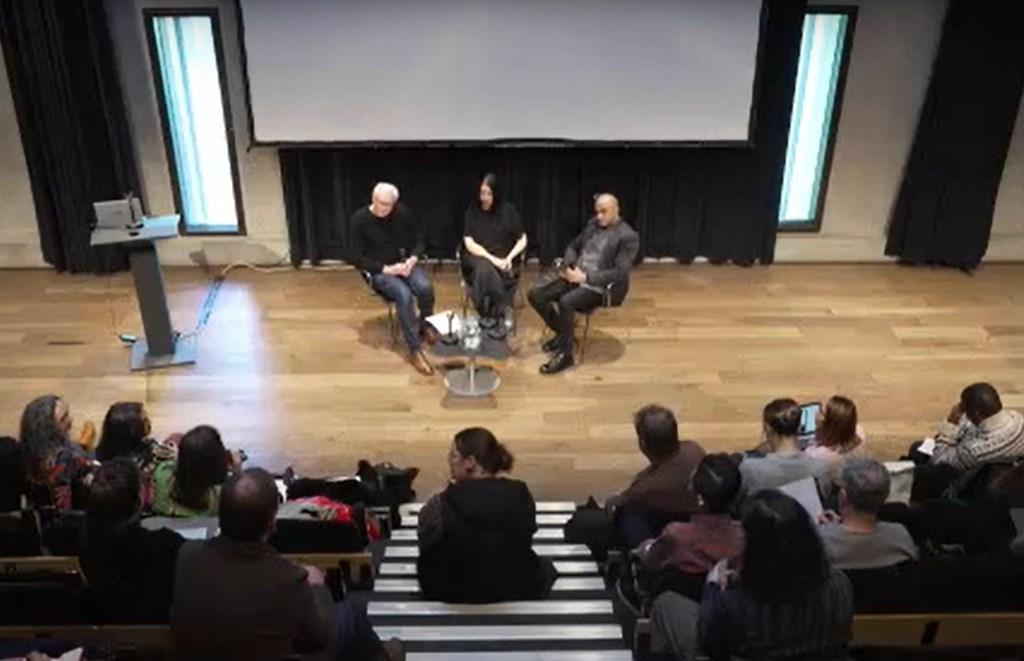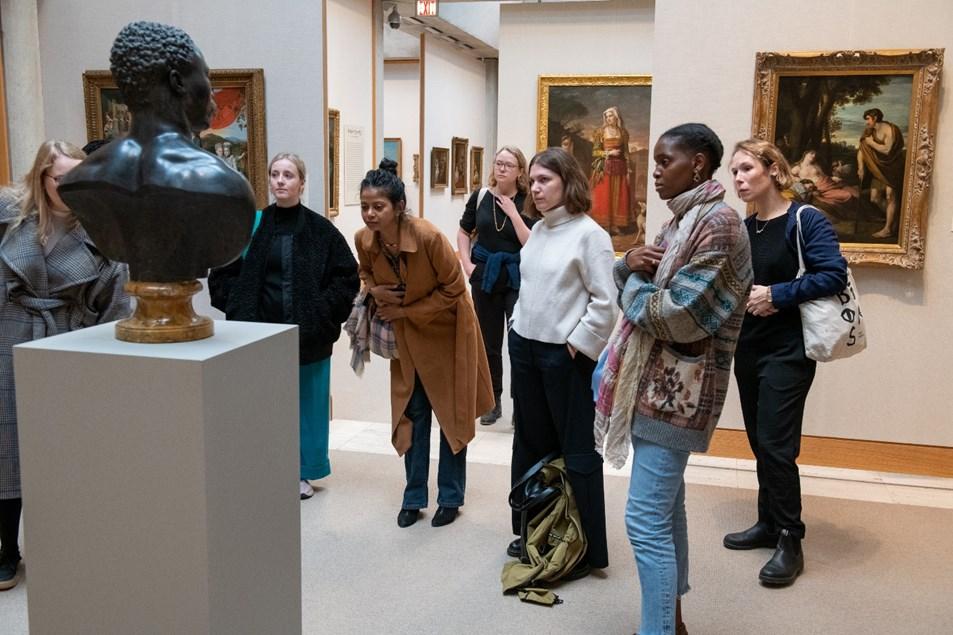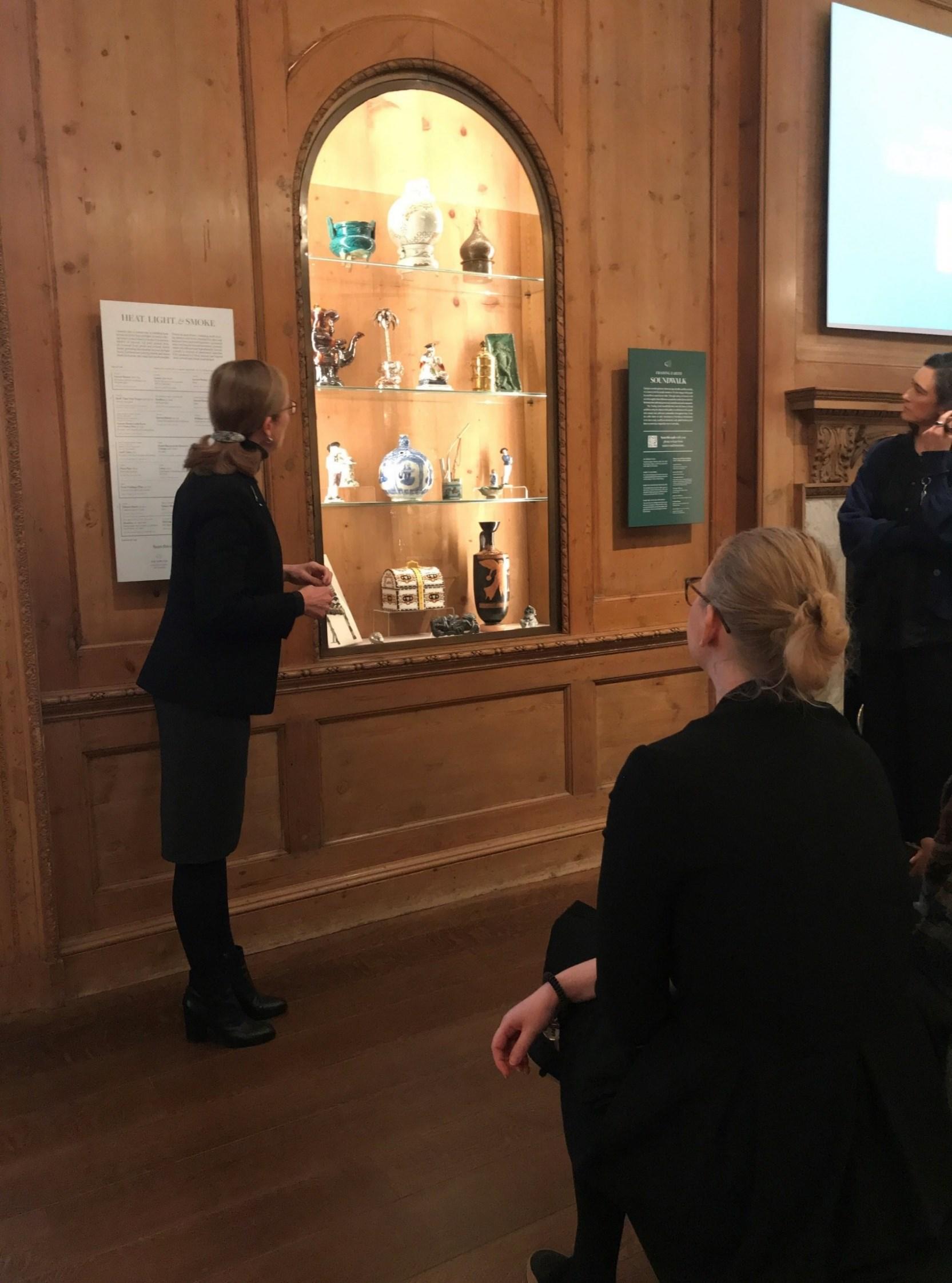
7 minute read
CONVENOR’S INTRODUCTION
BAN’s annual conference in November 2022 helped mark the tenth anniversary of the British Art Network, the official start date of which was (as reported to ACE at the time) 21 December 2012. This date, heralded as the day on which the world would end, according to a spurious but widely known interpretation of the Mayan calendar, provided a device for thinking through a moment of change and a decade of activity. The panels and presentations organised by our three distinguished guest convenors – the artist and writer Sonia Boué, Bryan Biggs, long-serving curator of Bluecoat Liverpool and Victoria Walsh, Professor at the Royal College of Art, explored questions of difference and neurodiversity, locality and globalism, decolonisation, decentring, and the sites of production of curatorial knowledge, while a roundtable at Tate Britain provided a platform for a group of senior figures to reflect on these questions and their own trajectories. Niyaz Saghari’s film Unravelled, premiered at that event, featured the guest convenors and other voices reflecting on these questions, and weaving these themes together in a compelling way. Niyaz’s films, in long and shorter versions (both with a BSL option), are already freely available online. Conference films and additional content are being prepared for online publication.
Overall, the conference content exposed quite how far we, in the curatorial field, have travelled since 2012. While a decade is not, perhaps, such an extensive period of time, poised somewhere between memory and history, but across the various panels and presentations, as people checked back in their diaries or reflected on their recollections of that year, there was a definite sense of some real transformations –particularly in the role of the digital (with the dramatic rise of social media), in the growing recognition of disability and neurodivergence, and new curatorial engagements in mainstream or established organisational contexts with race and representation. There were, to be sure, not only longer histories in play – Derek Horton and Alice Correia (who writes below) looked at a deeper history of curatorial change at Touchstones, Rochdale – but also a collective understanding of the last decade as witnessing some rapid and seminal developments. From the vantage point of the British Art Network itself, the chance to revisit the founding statements and early programme has been keenly illuminating: the way that British art curating was being conceived then – focused firmly on permanent collections, framed by a definition of British art set by the chronological and media scope of the collection at Tate, and shaped by the assumption that those engaged in curating would be in fulltime, permanent roles in museums or academia – feels rather distant. The field of curating now seems much less definitely structured around collections work and fixed roles, much more flexibly and dynamically interconnected with academic and creative enquiry. Whether these changes are simply positive, resulting in greater individual freedom, critical autonomy and workforce diversity, or whether they also involve damaging uncertainties and limitations (and perhaps let organisations ‘off the hook’ when it comes to developing the skills and expertise they depend upon) is another matter which we perhaps only began to explore in the programme. Similarly, whether ‘British art’ as an overarching concept is legitimate, or even useful, from a global perspective, or from a regional and national perspective around the British Isles and Ireland, was, again, only touched upon.
The annual conference was preceded by a new activity for BAN, the Curatorial Forum which was organised in partnership with the Yale Center for British Art (YCBA) in October. This, our first residential programme, involved eleven curators working in the UK, Australia, Europe and the USA, who were brought together in New Haven for an intensive week of gallery visits, workshops and discussion. For more on the Forum, Conference, and on BAN’s programme through 2022, see our new Annual Report which is now available online. The Forum was especially illuminating in bringing together a range of international perspectives, something we want to continue to develop through the Forum and beyond in 2023 and 2024. In this coming period, we want to gather up and consolidate the learning developed through BAN’s Research Groups, the new Seminars and, of course, our Emerging Curators Group, as well as through our conferences and now, the Forum. BAN is the sum of this activity, led by its Members, and we are pleased to feature below reflections from Emma Roodhouse on the changing views and understandings of the Landscape Group –supported by BAN since the beginning of the Research Group Programme – and from a more recent member, Alina Khakoo, on an event organised under the aegis of a similarly long-standing BAN group, Black British Art. The new and continuing Research Groups are noted below, as too are the 2023 membership of the Emerging Curators Group.

Members of the Curatorial Forum viewing artworks in the Yale Center for British Art in October 2022
We are also currently calling for applications for this year’s Seminar Support. As ever, information on forthcoming and past events and open opportunities can be found on the website.
The team that will support the programme for 2023 and beyond has taken a new shape, with the return of Jessica Juckes, familiar to many of you as BAN Coordinator, based in Tate’s National Programmes, and with Bryony Botwright-Rance, Networks Manager and Anthony Tino, Networks Administrator, at PMC working on BAN programming and development along with the Centre’s other networks and vocational opportunities. Over the last, busy months Rosalind Stockill has played a crucial role as Head of National Partnerships providing maternity cover for Heather Sturdy, who has returned to Tate this month. Bryony and Anthony introduce themselves below. Also below we have an interview with Sarah Turner, Acting Director at the Paul Mellon Centre following the departure of Mark Hallett, who has become Director of the Courtauld Institute of Art. Mark was pivotal in establishing the Centre’s generous support of the Network, which has underpinned the changes and expansion over the last few years. The tremendous rise in BAN membership and engagement since the PMC came on board is charted in our Annual Report, and is one key measure of the importance of the Centre’s support. Sarah has been closely involved with BAN for several years, including serving on our Steering Group. Here Sarah reflects on her own academic and curatorial engagements with British art, and the changes, challenges and opportunities she has observed.
Within the Steering Group, we have said goodbye to three members who have served their terms, contributing enormously to the work of the Network – Fiona Kearney, Dot Price and Sophia Hao. The Steering Group is a vital mechanism for BAN, providing oversight and direction for the Network team and our programme, and we are extremely grateful for their contributions along with the ongoing contributions of our current members. We are also pleased to announce two new members of the Group: Bryan Biggs, mentioned above as one of our guest convenors of the 2022 conference, with an amazing record as a transformative curator and administrator at the Bluecoat Liverpool stretching over four decades, and Cicely Robinson, one of our original ‘Early Career Curators Group’ cohort in 2015–2018 (now run as the Emerging Curators Group), whose career has included periods at the Watts Gallery and Palace House, Newmarket during moments of seminal change, and who is now a freelance curator, researcher and consultant.
With the new team in place, and our Steering Group’s vital oversight and input, we look forward to supporting our Members and the programme ahead for 2023.
Martin Myrone BAN Convenor

Curatorial tour of RISD, Providence, during the YCBA/BAN Curatorial Forum, October 2022




